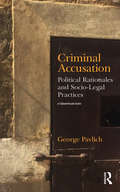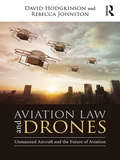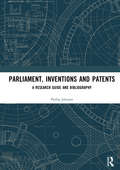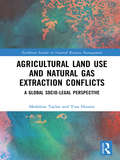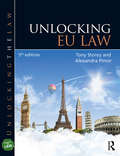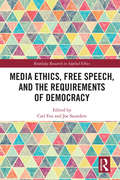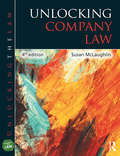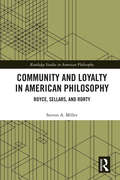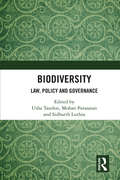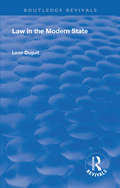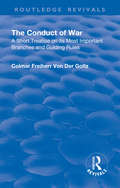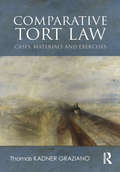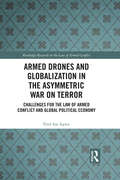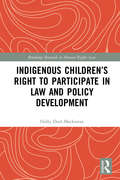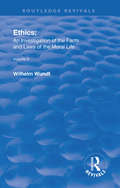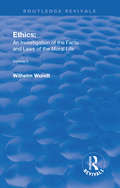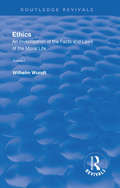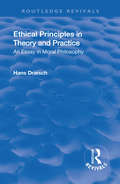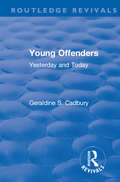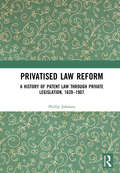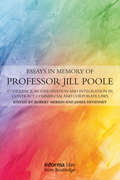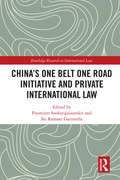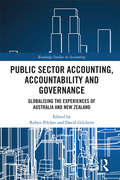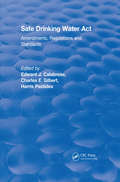- Table View
- List View
Criminal Accusation: Political Rationales and Socio-Legal Practices
by George PavlichAccusing someone of committing a crime arrests everyday social relations and unfurls processes that decide on who to admit to criminal justice networks. Accusation demarcates specific subjects as the criminally accused, who then face courtroom trials, and possible punishment. It inaugurates a crime’s historical journey into being with sanctioned accusers successfully making criminal allegations against accused persons in the presence of authorized juridical agents. Given this decisive role in the production of criminal identities, it is surprising that criminal accusation has received relatively short shrift in sociological, socio-legal and criminological discourses. In this book, George Pavlich redresses this oversight by framing a socio-legal field directed to political rationales and practices of criminal accusation. The focus of its interrogation is the truth-telling powers of an accusatory lore that creates subjects within the confines of socially authorized spaces. And, in this respect, the book has two overarching aims in mind. First, it names and analyses powers of criminal accusation – its history, rationales, rites and effects – as an enduring gateway to criminal justice. Second, the book evaluates the prospects for limiting and/or changing apparatuses of criminal accusation. By understanding their powers, might it be possible to decrease the number who enter criminal justice’s gates? This question opens debate on the subject of the book’s final section: the prospects for more inclusive accusative grammars that do not, as a reflex, turn to exclusionary visions of crime and vengeful, segregated, corrective or risk-orientated punishment. Highlighting how expansive criminal justice systems are populated by accusatorial powers, and how it might be possible to recalibrate the lore that feeds them, this ground-breaking analysis will be of considerable interest to scholars working in socio-legal research studies, critical criminology, social theory, postcolonial studies and critical legal theory.
Aviation Law and Drones: Unmanned Aircraft and the Future of Aviation
by David Hodgkinson Rebecca JohnstonThe aviation industry is being transformed by the use of unmanned aerial vehicles, or drones – commercially, militarily, scientifically and recreationally. National regulations have generally failed to keep pace with the expansion of the fast-growing drone industry. Aviation Law and Drones: Unmanned Aircraft and the Future of Aviation traces the development of aviation laws and regulations, explains how aviation is regulated at an international and national level, considers the interrelationship between rapidly advancing technology and legislative attempts to keep pace, and reviews existing domestic and international drone laws and issues (including safety, security, privacy and airspace issues). Against this background, the book uniquely proposes a rationale for, and key provisions of, guiding principles for the regulation of drones internationally – provisions of which could also be implemented domestically. Finally, the book examines the changing shape of our increasingly busy skies – technology beyond drones and the regulation of that technology. The world is on the edge of major disruption in aviation – drones are just the beginning. Given the almost universal interest in drones, this book will be of interest to readers worldwide, from the academic sector and beyond.
Parliament, Inventions and Patents: A Research Guide and Bibliography
by Phillip JohnsonThis book is a research guide and bibliography of Parliamentary material, including the Old Scottish Parliament and the Old Irish Parliament, relating to patents and inventions from the early seventeenth century to 1976. It chronicles the entire history of a purely British patent law before the coming into force of the European Patent Convention under the Patents Act 1977. It provides a comprehensive record of every Act, Bill, Parliamentary paper, report, petition and recorded debate or Parliamentary question on patent law during the period. The work will be an essential resource for scholars and researchers in intellectual property law, the history of technology, and legal and economic history.
Agricultural Land Use and Natural Gas Extraction Conflicts: A Global Socio-Legal Perspective (Earthscan Studies in Natural Resource Management)
by Madeline Taylor Tina HunterOnshore unconventional gas operations, in most jurisdictions, operate on the legal principle that all activities during exploration and extraction are ‘temporary’ in nature. The concept that the onshore unconventional gas industry has a temporary effect on the land on which it operates creates a regulatory paradox. On one hand, unconventional gas activities create energy security, national wealth and a bourgeoning export industry. On the other, agricultural land and agriculturalists may be significantly disadvantaged by unconventional gas activities potentially producing permanent damage to non-renewable fertile soils and spoiling the underground water tables. Thus, threatening future food security and food sovereignty. This book explores the socio-regulatory dimensions of coexistence between agricultural and onshore unconventional gas land uses in the jurisdictions with the highest concentration of proven unconventional gas reserves – Australia, Canada, the USA, the UK, France, Poland and China. In exploring the differing regulatory standpoints of unconventional gas land uses on productive farming land in the chosen jurisdictions, this book provides an original three-part categorisation of regulatory approaches addressing the coexistence of agricultural land and unconventional gas namely: adaptive management, precautionary and, finally, statism. It offers a timely and topical approach to socio-legal natural resource governance theory based on the participation, transparency and empowerment for agricultural landholders, examining how differing frameworks such as the collective bargaining framework can create equitable and sustainable contractual arrangements with unconventional gas companies.
Unlocking EU Law (Unlocking the Law)
by Tony Storey Alexandra PimorEuropean Law is a core element of every law degree in England and Wales. Unlocking EU Law will ensure you grasp the main concepts with ease, providing you with an essential foundation for further study or practice. The fifth edition is fully up-to-date with the latest developments, including: a new chapter on state liability; all major new cases; discussion of the possible impacts of Brexit. This book is essential reading for students studying EU Law on undergraduate courses in the UK. The UNLOCKING THE LAW series is designed specifically to make the law accessible. Features include: aims and objectives at the start of each chapter; charts of key facts to consolidate your knowledge; diagrams to aid learning; summaries to help check your understanding of each chapter; problem questions with guidance on answering; a glossary of legal terminology. The series covers all the core subjects required by the Bar Council and the Law Society for entry onto professional qualifications, as well as popular option units.
Media Ethics, Free Speech, and the Requirements of Democracy (Routledge Research in Applied Ethics)
by Carl Fox Joe SaundersHow we understand, protect, and discharge our rights and responsibilities as citizens in a democratic society committed to the principle of political equality is intimately connected to the standards and behaviour of our media in general, and our news media in particular. However, the media does not just stand between the citizenry and their leaders, or indeed between citizens and each other. The media is often the site where individuals attempt to realise some of the most fundamental democratic liberties, including the right to free speech. Media Ethics, Free Speech, and the Requirements of Democracy explores the conflict between the rights that people exercise in, and through, the modern media and the responsibilities that accrue on account of its awesome and increasing power. The individual chapters—written by leading scholars from the US, UK, and Australia—address several recent events and controversial developments in the media, including Brexit, the rise of Trump, Lynton Crosby, Charlie Hebdo, dog-whistle politics, fake news, and political correctness. This much-needed philosophical treatment is a welcome addition to the recent literature in media ethics. It will be of interest to scholars across political and social philosophy, applied ethics, media and communication studies, and political science who are interested in the important issues surrounding the media and free speech and democracy.
Unlocking Company Law (Unlocking the Law)
by Susan McLaughlinUnlocking Company Law is the ideal resource for learning and revising Company Law. This 4th edition has been extensively updated, and this, along with its many pedagogical features, makes it the ideal companion for students studying Company Law. Each chapter in the book contains: • aims and objectives; • activities such as self-test questions; • charts of key facts to consolidate your knowledge; • diagrams to aid memory and understanding; • prominently displayed cases and judgments; • chapter summaries; • essay questions with answer plans. In addition, the book features a glossary of legal terminology, making the law more accessible.
Community and Loyalty in American Philosophy: Royce, Sellars, and Rorty (Routledge Studies in American Philosophy)
by Steven A. MillerAmerican pragmatism has always had at its heart a focus on questions of communities and ethics. This book explores the interrelated work of three thinkers influenced by the pragmatist tradition: Josiah Royce, Wilfrid Sellars, and Richard Rorty. These thinkers’ work spanned the range of twentieth-century philosophy, both historically and conceptually, but all had common concerns about how morality functions and what we can hope for in our interactions with others. Steven Miller argues that Royce, Sellars, and Rorty form a traditional line of inheritance, with the thought of each developing upon the best insights of the ones prior. Furthermore, he shows how three divergent views about the function, possibilities, and limits of moral community coalesce into a key narrative about how best we can work with and for other people, as we strive to come to think of widely different others as somehow being morally considerable as "one of us."
Biodiversity: Law, Policy and Governance
by Usha Tandon Mohan Parasaran Sidharth LuthraConservation of biodiversity is a fundamental concern towards securing a sustainable future. This volume argues that despite various domestic and international policies and legal frameworks on biodiversity conservation — be it forest, wildlife, marine, coastal, etc. — their implementation suffers from many deficiencies. It explores the factors that hinder effective implementation of these policies and frameworks. It also analyses existing laws, both international and domestic, to identify inherent problems in the existing legal system. The book maintains that careful adherence to established procedures and protocols, public awareness, filling the lacuna in legal framework, and a strong political will are sine qua non for effective conservation of biodiversity and sustainable development. The volume defends the protection of traditional knowledge and participation of indigenous communities along with reinforcements of intellectual property in this regard. It also commends the role played by the Indian judiciary, especially the Supreme Court of India and India’s National Green Tribunal for the preservation and enhancement of natural resources by applying established as also evolving principles of environmental law. This book will be useful to scholars and researchers of environmental studies, development studies, policy studies and law related to biodiversity and conservation.
Revival: Law in the Modern State (Routledge Revivals)
by Leon DuguitIt is perhaps worth explaining why there is a special importance in the present development of the theory of the State. Law, like every social phenomenon, is subject to perpetual change; indeed any scientific study of law must necessarily involve an analysis of the evolution of legal institutions. In a sense, therefore, the trasnformation of the state is also the transformation of its law. But we must go a little deeper. The real justification of this book is the immediate situation of political theory. Just as every living being has moments in its existence when, even while obeying the general law of its life, it undergoes a change that is especially fundamental in importance, so it is in the history of peoples.
Revival: A Short Treatise on its Most Importsant Branches and Guiding Rules (Routledge Revivals)
by Colmar Freiherr von de GoltzThis book contains, in a brief form, author’s views a to the conduct of the principal strategical and tactical operations of war, and will be found to be a short and convenient introduction to a deeper study of the rules which should underlie the direction of the ever-varying incidents of modern fighting.
Comparative Tort Law: Cases, Materials, and Exercises
by Thomas Kadner Kadner-GrazianoComparative Tort Law promotes a ‘learning by doing’ approach to comparative tort law and comparative methodology. Each chapter starts with a case scenario followed by questions and expertly selected material, such as: legislation, extracts of case law, soft law principles, and (where appropriate) extracts of legal doctrine. Using this material, students are invited to: • solve the proposed scenario according to the laws of several jurisdictions; • compare the approaches and solutions they have identified; • evaluate their respective pros and cons; and • reflect upon the most appropriate approach and solution. This book is essential reading for all students and scholars of comparative tort law and comparative law methodology and is the ideal companion for those wishing to both familiarise themselves with real-world materials and understand the many diverse approaches to modern tort law.
Armed Drones and Globalization in the Asymmetric War on Terror: Challenges for the Law of Armed Conflict and Global Political Economy (Routledge Research in the Law of Armed Conflict)
by Fred Aja AgwuThis book is a critical exploration of the war on terror from the prism of armed drones and globalization. It is particularly focused on the United States’ use of the drones, and the systemic dysfunctions that globalization has caused to international political economy and national security, creating backlash in which the desirability of globalization is not only increasingly questioned, but the resultant dissension about its desirability appears increasingly militating against the international consensus needed to fight the war on terror. To underline the controversial nature of the "war on terror" and the pragmatic weapon (armed drones) fashioned for its prosecution, some of the elements of this controversy have been interrogated in this book. They include, amongst others, the doubt over whether the war should have been declared in the first place because terrorist attacks hardly meet the United Nations’ casus belli – an armed attack. There are critics, as highlighted in this book, who believe that the "war on terror" is not an armed conflict properly so called, and, thus, remains only a "law enforcement issue." The United States and all the states taking part in the war on terror are obligated to observe International Humanitarian Law (IHL). It is within this context of IHL that this book appraises the drone as a weapon of engagement, discussing such issues as "personality" and "signature" strikes as well as the implications of the deployment of spies as drone strikers rather than the Defence Department, the members of the U.S armed forces. This book will be of value to researchers, academics, policymakers, professionals, and students in the fields of security studies, terrorism, the law of armed conflict, international humanitarian law, and international politics.
Indigenous Children’s Right to Participate in Law and Policy Development (Routledge Research in Human Rights Law)
by Holly Doel-MackawayThis book presents a model for reforming and developing Indigenous related legislation and policy, not only in Australia, but also in other jurisdictions. The model provides guidance about how to seek, listen to and respond to the voices of Indigenous children and young people. The participation of Indigenous children and young people, when carried out in a culturally and age-appropriate way and based on free, prior and informed consent, is an invaluable resource capable of empowering children and young people and informing Indigenous related legislation and policy. This project contributes to the emerging field of robust, ethically sound, participatory research with Indigenous children and young people and proposes ways in which Australian and international legislators and policymakers can implement the principle of children’s participation by involving Aboriginal children and young people in the development of law and policy pertaining to their lives. This book provides accounts from Aboriginal children and young people detailing their views on how they can be involved in law and policy development in the future. It shows the latest state of knowledge on the topic and will be of interest to researchers, academics, policymakers, legislators, and students in the fields of human rights law, children’s rights, participation rights, Indigenous peoples’ law, and family, child and social welfare law.
Revival: Volume III: The Principles of Morality and the Sphere of their Validity (Routledge Revivals)
by Wilhelm WundtIt has been my object in the present work to investigate the problems of ethics in the light of an examination of the facts of moral life. One reason for this procedure is my desire to conduct the reader by the same path that I myself have followed in approaching ethical questions.
Revival: Volume II: Ethical Systems (Routledge Revivals)
by Wilhelm WundtThe present work aims to investigate the problems of ethics in the light of an examination of the facts of moral life.
Revival: Volume I: Introduction: The Facts of Moral Life (Routledge Revivals)
by Wilhelm WundtIt has been my object in the present work to investigate the problems of ethics in the light of an examination of the facts of moral life. One reason for this procedure is my desire to conduct the reader by the same path that I myself have followed in approaching ethical questions.
Revival: An Essay in Moral Philosophy (Routledge Revivals)
by Hans DrieschAlmost all the existing modern systems of Ethics deal with formal definitions, and at bottom repeat more or less the same thing about them in slightly different words. In this work these are a side issue, and therefore are treated briefly. Their treatment in Section I is based upon the author’s theoretical works the Theory of Order and the Theory of Reality, but will be intelligible to those who are not acquainted with those works. The chief concern is moral teaching – that is, the practical element.
Revival: Yesterday and Today (Routledge Revivals)
by Geraldine S. CadburyThis unusual book tells vividly the story of children who have broken the law and their treatment from the time of King Athelstan to present day. With few exceptions, they suffered for centuries the same harsh treatment as older men and women, and it was only gradually that the terrible conditions in the prisons in this and other countries improved The early experiments in wiser treatment are graphically described and the efficacy of modern reformative measures is clearly demonstrated Legislation affecting young offenders is explained and the book should prove most valuable to all those who have responsibility for dealing with difficult children
Privatised Law Reform: A History Of Patent Law Through Private Legislation, 1620-1907
by Phillip JohnsonIn the history of British patent law, the role of Parliament is often side-lined. This is largely due to the raft of failed or timid attempts at patent law reform. Yet there was another way of seeking change. By the end of the nineteenth century, private legislation had become a mechanism or testing ground for more general law reforms. The evolution of the law had essentially been privatised and was handled in the committee rooms in Westminster. This is known in relation to many great industrial movements such as the creating of railways, canals and roads, or political movements such as the powers and duties of local authorities, but it has thus far been largely ignored in the development of patent law. This book addresses this shortfall and examines how private legislation played an important role in the birth of modern patent law.
Essays in Memory of Professor Jill Poole: Coherence, Modernisation and Integration in Contract, Commercial and Corporate Laws
by Robert Merkin James DevenneyThis book is a collection of original, thought-provoking essays on critical issues in contract, commercial and corporate law. It is dedicated to the memory of the late Professor Jill Poole, who inspired so many and made such important contributions to these fields of law. The essays are written by leading practitioners and academics in the field, building on Jill’s work. As such this collection will be of interest and importance to professionals, academics and students in these fields of law. The Professor Jill Poole Educational Fund has been established in memory of Jill. It will be used to support undergraduate students in obtaining 'excellence scholarships' at Aston Law School and to reward 'excellence' at the annual law graduation ceremony. All contributions are welcome, and the royalties from this collection of essays have been donated to it.
China's One Belt One Road Initiative and Private International Law (Routledge Research in International Law)
by Sai Ramani Garimella Poomintr SooksripaisarnkitThe concept of the One Belt One Road initiative (OBOR) was raised by the President of the People’s Republic of China in October 2013. The OBOR comprises the ‘Silk Road Economic Belt’ and the ‘21st Century Maritime Silk Road’, encompassing over 60 countries from Asia to Europe via Southeast Asia, South Asia, Central Asia, West Asia, and the Middle East. The overall objective of the OBOR is to encourage the economic prosperity of the countries along the Belt and Road and regional economic cooperation, encourage mutual learning between different civilizations, and promoting peace and development. However, countries along the Belt and Road routes of the OBOR project have diverse laws and legal systems. It is not difficult to envisage problems relating to harmonisation of laws and rules in trade between countries along the OBOR routes or otherwise. These problems can potentially cut through the core of the very objective of the OBOR itself. Integration in China’s One Belt One Road Initiative explores possible challenges to the success of the OBOR arising from the situational interface of diversity of laws, with the focus primarily on issues associated with private international law. It shows the latest state of knowledge on the topic and will be of interest to researchers, academics, policymakers, and students interested in private international law issues pertaining to the OBOR routes as well as private international law in general, Asian studies, and the politics of international trade.
Veterinary Forensic Medicine and Forensic Sciences
by Jason H. Byrd Patricia Norris Nancy Bradley-SiemensWhile there are several recent books on this emerging field, Veterinary Forensic Medicine and Forensic Sciences sets the bar, covering all relevant aspects in a succinct, easy-to-read, comprehensive format designed to be taught in a single-semester course. Intended to be the premier textbook on veterinary forensic sciences, the book covers the application of veterinary forensic medicine to cases, including the medical perspective as well as law enforcement response, crime scene management, and evidence recovery issues. Coverage includes the scientific and legal principles for veterinary forensic evidence. This clearly delineates it from veterinary-only practices, since the forensic aspects present additional challenges that include evidence recovery and preservation, report writing, and maintaining an evidentiary chain of custody, all the way through expert witness testimony. Some emerging topics that are covered include DNA and genetic evidence, entomological evidence in support of veterinary forensics, animal fighting, situational deaths, including poisonings, domestic violence, and cruelty, sharp and blunt force trauma, gunshot and wound ballistics, sexual assault, nonhuman odontology and osteology, and more. Features Details a process for forensic science case management for humane law enforcement agencies Presents multiple chapters on specific types of trauma analysis in animals Provides developments on current trends in forensic entomology as applied to wildlife crime and minimum postmortem interval determinations Explores national and international considerations in combating organized animal fighting Offers DNA applications for wildlife crime and environmental monitoring Outlines current animal and environmental forensic toxicology legal casework This text offers a straightforward presentation of current practices and includes several real-world case examples throughout to illustrate concepts. Fully illustrated with more than 280 full-color images, Veterinary Forensic Medicine and Forensic Sciences provides the latest in advances and up-to-date field techniques, applicable for student instruction in the classroom and beyond.
Public Sector Accounting, Accountability and Governance: Globalising the Experiences of Australia and New Zealand (Routledge Studies in Accounting)
by Robyn Pilcher David GilchristFunded by taxation, public spending cannot be separated from politics and ensuring efficiency and effectiveness is always high on the political and policy agenda. Accounting, accountability, governance and auditing are essential ingredients in evaluating public sector performance. Australia and New Zealand are world leaders when it comes to public sector accounting—such as being the first to introduce transaction-neutral accounting standards. This edited collection considers current issues impacting the public sector by primarily drawing upon experiences of Australia and New Zealand. Then, by combining history (from the time of the Domesday book, early sovereignty and Shakespeare) with current practice (differential reporting, international financial reporting standards, government performance, voter turnout, joined-up government and auditing practices), we use these experiences to illuminate the global issues of public sector accounting, accountability and governance. Based on rigorous research by top public sector researchers, this edited collection offers a multitude of future research ideas to enable those interested in following this pathway—whether they are in Australia, New Zealand, the United Kingdom, Europe, the United States of America, Africa or anywhere else in the world—an avenue to traverse.
Safe Drinking Water Act (CRC Press Revivals)
by Edward J. CalabreseThis new book covers drinking water regulations such as disinfectant by-products, synthetic organics, inorganic chemicals, microbiological contaminants, volatile organic chemicals, radionuclides, fluoride, toxicological approaches to setting new national drinking water regulations, and trihalomethanes. In addition, organic and inorganic compounds scheduled to be regulated in 1989 and new candidates for the 1990s regulations are detailed.
